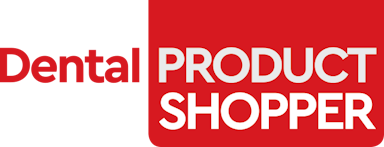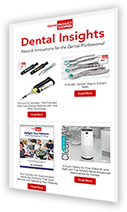Recent global ransomware attacks are providing a startling wake-up call to the healthcare industry, and reinforce a point that can’t be overstated: make sure your network security is up to date with the latest protections.
You may recall hearing about the WannaCry ransomware virus attack, which began on May 12 and was reported to have infected more than 200,000 computers in at least 150 countries. One of the affected organizations was Britain’s National Health Service, which saw its records and booking systems locked. Whereas many ransomware attacks are the result of phishing scams and trick a user into opening the malicious attachment or link, WannaCry was a network worm that used a vulnerable Windows SMB driver as a point of entry, thus illustrating the importance of keeping your operating system up to date.
This was the second major attack on a British healthcare system within a year. In late October, 3 hospitals in the Northern Lincolnshire and Goole NHS Foundation Trust were forced to cancel operations and outpatient appointments after being forced offline as a result of the Goole2 ransomware infection.
These are more than just isolated incidents. They’re becoming an alarming trend.
 Here are 5 facts about cyber-attackers targeting the healthcare industry:
Here are 5 facts about cyber-attackers targeting the healthcare industry:
- 1. More than 16 million patient records were stolen from healthcare organizations in the U.S. and related parties in 2016.
- 2. When it comes to cyber-attacks, healthcare was the fifth most-targeted industry last year.
- 3. Healthcare relies heavily on technology, which makes the industry attractive to hackers. The most common cyber-threats to healthcare are data theft attacks, that often start from something like phishing attacks. *
- 4. A Trend Micro report showed 80 new ransomware families were discovered in the first half of 2016, an increase of 172% from 2015.
- 5. From January to September 2016, ransomware attacks against businesses increased by 300% when compared to 2015 in total.**
*Source for 1-4: The Conversation, “Why has healthcare become such a target for cyber-attackers?”, Myrsini Athinaiou
**Source for 5: WatchGuard Technologies, “Whitepaper: Keep Ransomware from Scratching at Your Door"
If ransomware is becoming more sophisticated and the attacks more frequent, what does that mean to businesses like dental practices specifically?
According to WatchGuard Technologies, a leader in the network security market, small-to-midsize businesses disproportionately fall victim to ransomware, as they often lack the technical skills and tools needed to prevent infection. This breaks down into real dollars and cents for dental practices.
Here are some statistics from WatchGuard Technologies’ report:
- ->In 2016, the average random demand was $679, more than double the 2015 average demand of $294.
- -> In 2016, 34% of ransomware victims reported a loss of revenue, while 20% had to stop operations completely.
- -> Costs to a small business as the result of a successful ransomware attack could reach up to $99,000.
The costly setbacks of a ransomware attack could be devastating to your practice, not to mention the permanent damage it can do to your practice’s reputation.
Protect Your Practice
 Henry Schein TechCentral offers dental practices a comprehensive, all-in-one network security solution provided by WatchGuard that is tailored specifically for the dental market. Key to the TechCentral approach is the ability to correlate network and endpoint security events with threat intelligence to detect, prioritize, and enable immediate action to stop malware attacks.
Henry Schein TechCentral offers dental practices a comprehensive, all-in-one network security solution provided by WatchGuard that is tailored specifically for the dental market. Key to the TechCentral approach is the ability to correlate network and endpoint security events with threat intelligence to detect, prioritize, and enable immediate action to stop malware attacks.
In an era of sophisticated attacks, it’s time to invest in sophisticated network security solutions. You owe it to yourself and your patients. Your success begins with a free network assessment performed by a TechCentral technology professional who will evaluate your networks, servers, firewall, and more. Call 844.206.1228 to schedule your assessment today.
To learn more about how small-to-midsize businesses can defend against the onslaught of ransomware attacks, download the free eBook, "How to Avoid Falling Prey to Ransomware".
Some of the product(s) and/or service(s) described herein are provided by a third party. Henry Schein, Inc. or its affiliates (“HSI”) make no independent assessment of the content and descriptions provided by such third party and this advertisement does not constitute an endorsement HSI. HSI is not responsible for, and expressly disclaims all liability for damages of any kind arising out of such third party products or services.



